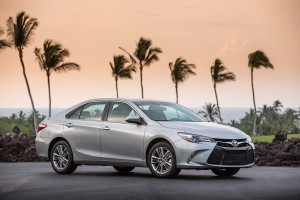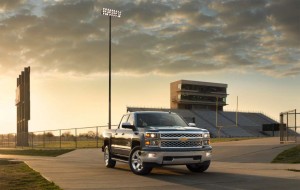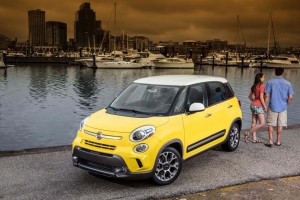
CR gives thumbs up to the Toyota Camry, the magazine predicting good reliability for the 2015 update.
The quality of the cars sold on the U.S. market has hit a plateau, and motorists can put the blame on new technologies – especially the infotainment systems that have become increasingly common on today’s models, according to a new study by Consumer Reports.
The influential non-profit publication likened the issue to a “reliability plague,” chief auto tester Jake Fisher noting that, if anything, the latest annual Consumer Reports Automotive Reliability study might be downplaying the problem because it reports only actual defects.
The situation would be even worse if the study included complaints about just how difficult many infotainment systems are to operate.
“The big problem is infotainment. Take that out and (the quality of) cars would be improving,” said Fisher, during an appearance before the Detroit Automotive Press Association.
New technology, in general, has become a big problem for the industry – not only infotainment systems, but turbochargers, and transmissions, Fisher offered as example.
(A TDB exclusive: are “geographic recalls” putting millions of American motorists at risk? Click Here for this special report.)
While such problems can be seen industry-wide, the annual Consumer Reports study, based on a survey of its subscribers, as well as its own testing, found that there’s a wide disparity in overall reliability depending on manufacturer.
As they have since 2008, Lexus and its sibling Toyota brand topped the chart in the latest study – Japanese manufacturers, in general, leading the industry with six of the top 10 brands. Buick was the only Detroit maker, in the sixth position, while Audi and Porsche were the two European brands on the list. Korean carmaker Kia nabbed the tenth slot.
(Click Here for a review of the new 2015 Toyota Camry.)
Not all Asian brands fared as well, with Nissan and its luxury brand Infiniti lagging well below the market leaders. Infiniti was hammered by a variety of different problems, especially with its new Q50 sedan’s balky infotainment system, explained Fisher.
Among domestic makers there was a wide gap. Chrysler’s reliability slipped sharply compared to the 2013 survey, and the automaker’s Italian partner Fiat was at the absolute bottom of the list, Fisher reporting the 500L people-mover was the single-most problem-plagued vehicle in the Consumer Reports study. But all of the various Chrysler brands lost ground over the past year.
Ford, on the other hand, “looks like it has turned the corner” after suffering several years of quality problems, said Fisher. The Ford brand itself climbed three places up the chart, while the upscale Lincoln division posted the largest improvement of any brand, rising 12 spots. Addressing infotainment issues helped both brands.
General Motors was the highest-ranked of the Detroit Big Three, its Buick division making it into the Auto Reliability Study’s top 10, while Cadillac jumped up by seven places. Every model Buick makes had at least average or better reliability. That wasn’t the case for Chevrolet and GMC, both slumping markedly this year, largely due to nagging problems with GM’s full-size pickups, the Chevy Silverado and GMC Sierra.
The other domestic automaker, California-based Tesla, has had its issues with quality lately but still managed to maintain an average score and keep its coveted “Recommended” rating.
Among European brands, Audi’s 5th place finish was significant considering “it was down in the bottom five years ago,” said Fisher. The “big disappointment,” he added, was the tumble by Mercedes-Benz, which fell 11 places to 24th on the list of brands. The study data point to problems with the German maker’s new CLA and S-Class models.
Ironically, those are some of the biggest sales successes Mercedes has ever had.
But they point to an uncomfortable fact, said Fisher, who noted that, on the whole, all-new or significantly updated vehicles tend to have more trouble than holdover models or those going through minor, mid-cycle updates.
Add new technology and the combination can be disastrous when it comes to quality and reliability.
(Gas prices keep plunging. Click Here to see how low they can go.)



Too bad they can’t track how many accidents, deaths or serious injuries are caused by the electronic toys in newer vehicles. I’ll bet that would open some eyes.
I’m suspicious of the high ratings for Tesla, as well as the proportionately high rate of the California car included in the consumer self-reported surveys. Sales are highly concentrated in Silicon Valley. Could it be the ballot box is being stuffed? I will dig further and report later.
While I am also suspicious, Mike, the reality is that the Model S really is everywhere in Silicon Valley.
Paul E.
Silicon Valley is where those with too much money and the tree huggers live… LOL